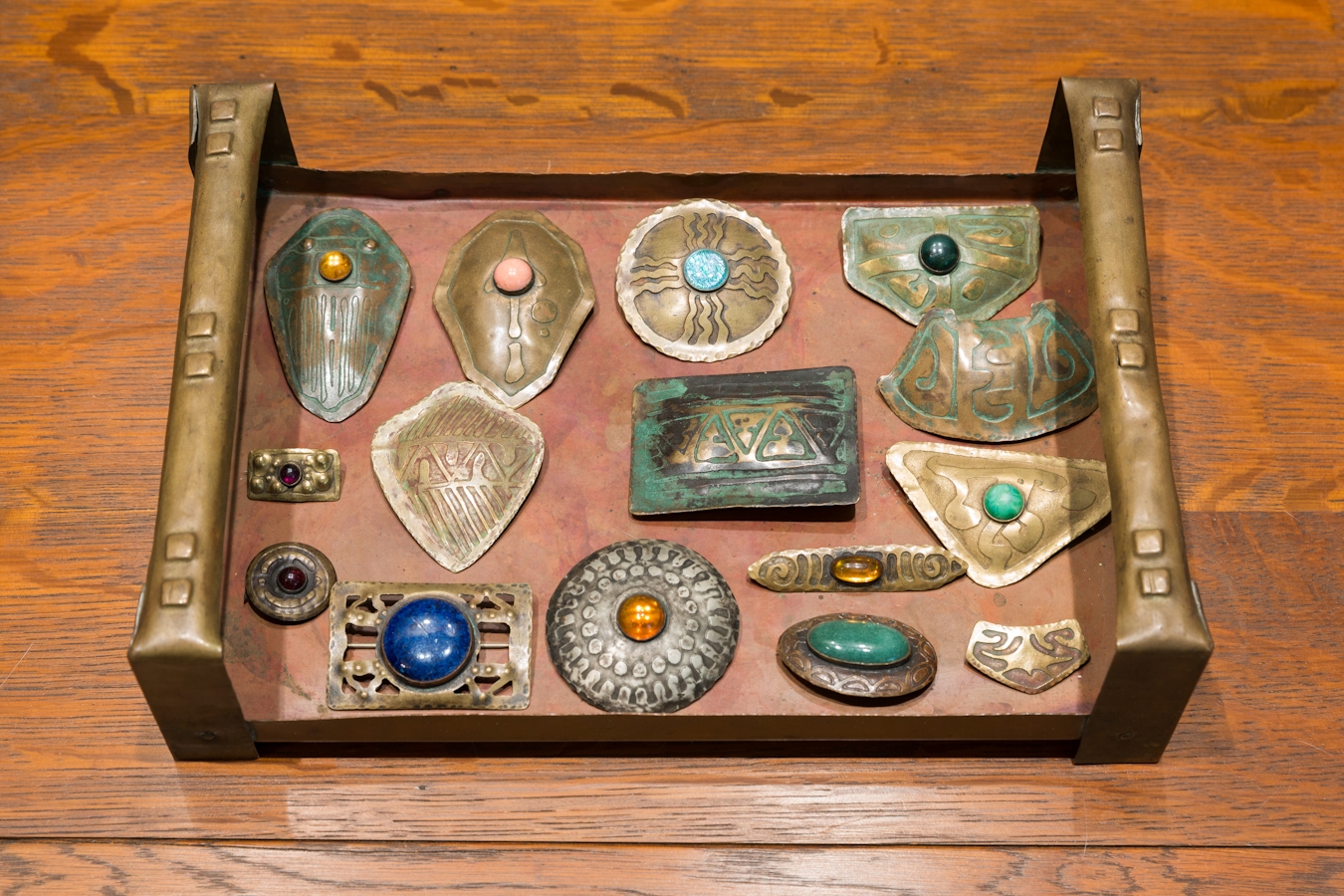Hand and Machine in Harmony: Regional Arts & Crafts
This exhibition features the work of prominent Arts and Crafts designers working across the Midwest in the early 20th century.
About the Exhibition
The cities of Chicago, Cincinnati, and Grand Rapids were particularly important hubs of the movement in the United States. These three cities were home to numerous manufacturers, designers, schools, and guilds dedicated to Arts and Crafts ideals.
The Arts and Crafts movement emerged in England in the mid-19th century out of concern over the negative effects of the industrial revolution and the loss of traditional handcraftsmanship. The movement stressed the importance of art in daily life and valued simplicity, durability, and functionality. Proponents advocated for a revival of traditional crafts, particularly metalwork, ceramics, stained glass, and woodworking. These ideas took root among the craftspeople of the Midwest, where the industrial revolution had created tremendous growth, but also numerous social and environmental issues. While British designers cautioned against machine production, Midwestern designers were uniquely positioned to merge the fine craftsmanship and style of English Arts and Crafts with the region’s existing factory infrastructure.
In Grand Rapids, furniture manufacturers like Charles P. Limbert and Gustav Stickley created harmony between machine production and handwork, which enabled them to produce furniture that was well-made, beautifully designed, and affordable to the middleclass. In Chicago, metalshops like Clara Barck Welles’ Kalo Shop sought to transform machine rolled silver and copper into metal goods that were “beautiful, useful, and enduring.” Pottery schools and workshops throughout the Midwest used factory produced ceramics to teach women the art of china painting, elevating a mass-produced object to a work of art while simultaneously giving women the opportunity to earn an independent living.
This exhibition will be presented in two parts:
West Michigan (October 24, 2020-January 23, 2021)
The Midwest (February 13-April 24, 2021)





